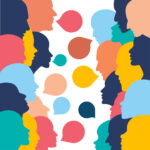Earlier this month, media mogul Ariana Huffingtongave the commencement address to the class of 2013 at Smith College in Northampton, Mass. As is standard, commencement speakers provide life and career advice to graduates. Yet no one in the audience expected this unusual advice from Huffington: “You don’t get to the top by marrying someone. A much simpler way is to sleep your way to the top.”
Turns out, she meant this literally. As in sleep more. Back in 2007, a very sleep deprived Huffington fainted, hit her head on her desk and ended up with a broken cheekbone and four stitches. Long-term sleep deprivation can lead to serious medical conditions including high blood pressure, obesity, higher risk of stroke, psychiatric problems, bone damage and various heart problems. Not to mention the fact that sleep-deprived driving is associated with more than 100,000 car crashes each year, many of them fatal.
But it’s not just your health that can suffer from sleep deprivation – it’s also your career. “Sleep deprivation will also profoundly affect your creativity, your productivity and your decision-making,” noted Huffington.
And here’s why. Sleep deprivation can:
- Lead to decreased alertness and excessive sleepiness, which in turn impairs your cognitive abilities and your memory. This means you probably won’t remember that long “to do” list at work, or what your boss is looking for in your next assignment.
- Make you more emotional, moodier or prone to conflicts, threatening not just your personal relationships but also your professional ones. No one likes an angry co-worker!
- Reduce focus and performance. Losing just 90 minutes of sleep one night can reduce your alertness by more than 30 percent. This means it will be hard to pay attention in meetings or with clients or customers at work.
So what can we do to ensure we get more sleep? As Huffington says, “I’m a major sleep evangelist. The Huffington Post’s office in New York sports two nap rooms: at the beginning our reporters, editors and engineers were reluctant to use them, afraid that people might think they’re shirking their duties. We have to change workplace culture so that it’s walking around drained and exhausted that’s stigmatized.”
While your office may not provide a nap room (yet), you can take action to improve your sleep at night. Whether through complementary therapies, practicing good sleep habits, visiting sleep doctors at the UPMC Sleep Medicine Center, or participating in research at Pitt’s Sleep Medicine Institute to learn more about sleep habits, you can start “sleeping your way to the top.”








